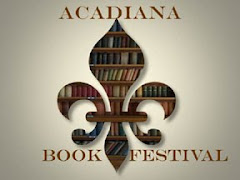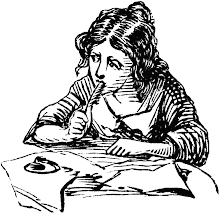
(Writing's) a lot like painting by the numbers; you may get one corner of the picture just right, but you're nowhere near experiencing the flow and excitement of creation. It's far more important (and constructive) to get the entire tale down on paper, warts and all, then come back and refine it. - Persia Woolley, How to Write and Sell Historical Fiction
"I have too much to do. It's too noisy. My favorite show is on television. I need to cook supper. I'm too tired." These are a few examples of the hundreds of excuses that I tend to make for myself to avert my attention away from editing the stories that I have written.
I mean, I wrote the story. It will be there when I get ready to edit, right? Sure. Unless a natural disaster occurs or the local thief peddles in scribbled-up notebooks, the manuscript will likely remain under a stack of magazines, just where I left it. So why can't I edit my story and get it over with?
My husband took note a few days ago that I had not actually sat in the "writing nook" that I painstakingly put together in our bedroom. The black chair is now covered in stacks of clothes and cat hair. I find my furry friend curled up asleep in my nook 9 times out of 10.
I am, no doubt, going through a phase that most, if not all, writers go through from time to time. I cannot pinpoint if it is a lack of discipline, the unwillingness of taking my job seriously, or if there is an amount of unconscious fear that has built up this barrier in front of me. Quite often I find myself reading the first page of Chapter Ten in Persia Woolley's book, trying to get it to sink in:
It is precisely this challenge, and the discipline required to meet it, that makes the difference between you and the hundreds of wanna-bes who have grand stories and interesting characters in mind but won't commit to treating writing like a job. It takes a combination of dedication, determination and desperation to become a historical novelist,...
So. why is finishing up a story, or writing it to begin with, so damn hard? The concept is there, the research has been done. Is it the fear of failure that plagues me so? Some of these questions cannot be explained in a simple "how to" book.








No comments:
Post a Comment